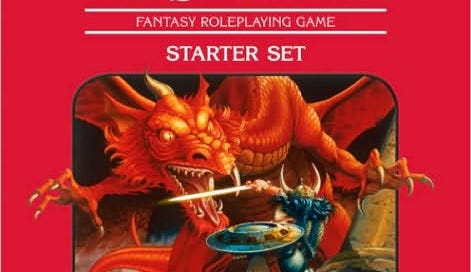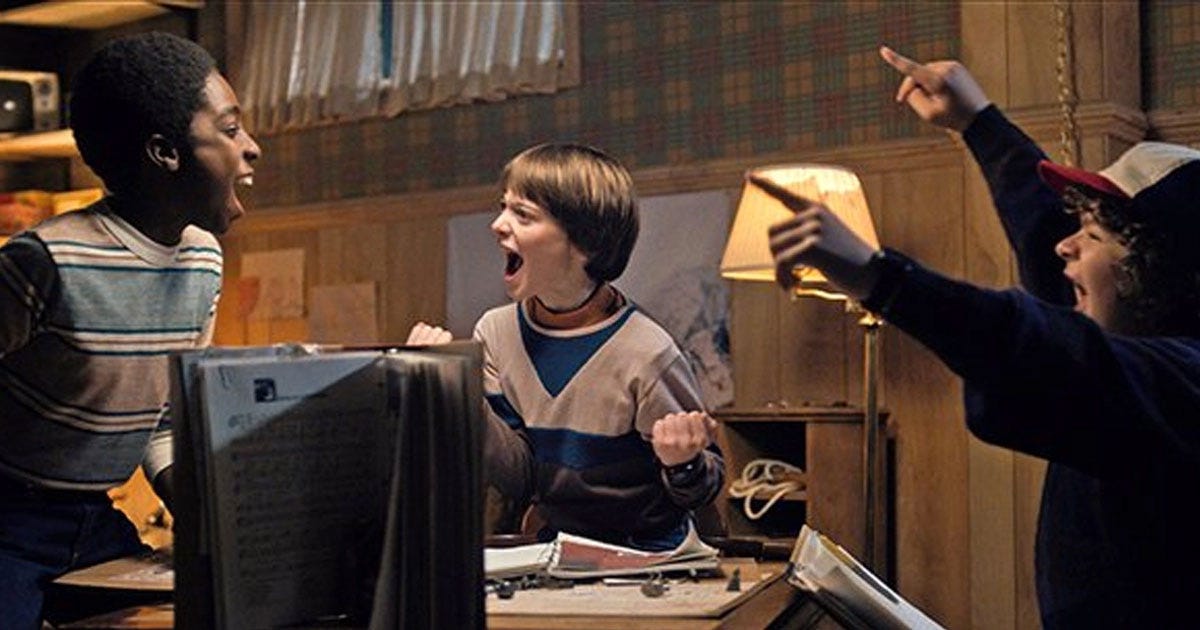I started playing Dungeons and Dragons (D&D) when I was around 12 years old. This was long enough ago that we were still in the grip of the Satanic Panic, which has quieted some but never really left us. Fortunately my parents didn’t buy into the hype and let me continue playing. They even encouraged my hobby to varying degrees along the way, to my continuing gratitude (thanks Mom and Dad!). This has lead to a lifelong interest in the mainstream nerd media ecosystem.
I read a lot of books when I was in high school; mostly fantasy with some science fiction rolled in for good measure. I was also into comic books, which probably won’t be a surprise by now. Those tastes were reflected in the nerdy tabletop role playing games (TTRPGs) that we played. D&D for your classic fantasy, Star Frontiers and Shadowrun for different sci fi fixes, and even Boot Hill when we felt like adding some Old West flair. We tried a lot of different systems and settings. But there’s a constant that runs through all of this: storytelling.
Telling stories is a practice as old as humanity itself. At first it was a strictly oral endeavor, with tales being passed from one to another through the spoken word. Each individual storyteller might have their own embellishments or emphasis, but these stories were embedded in their culture, so the core message remained unchanged. They were used to tell the history of creation, provide examples of good behavior, and served as a warning to those that might stray from the path away from the light. They help inform us as to the type of person our society thinks we ought to be. They reflect our important cultural values.
This might be the time to emphasize a key distinction: Not everything you hear, read, or watch qualifies as storytelling. If I might paraphrase from Indiana Jones and the Last Crusade, Prof. Jones told his students that archeology was the pursuit of fact, not truth. Those searching for truth, he said, were directed towards the philosophy class down the hall. And that is what makes for good storytelling. Like philosophy, telling a proper story is meant to expose some truth about the world. It should act as a moral standard for the society in which the story is told. This is why it’s important to read stories from other cultures from time to time. For example, the science fiction book Three Body Problem (the first book in a fantastic trilogy that I highly recommend) was written by a Chinese author. A different culture and different values are reflected in the book.
The media used to tell stories changed over time as technology dictated. The oral tradition gave way to writing, which was replaced by radio (which was kind of a partial reversion to the spoken word), which was supplanted by the visual methods of television and cinema, and rests now on the internet. No way of telling stories ever fully replaces the previous methods, and this is particularly true of the internet. You can listen to a podcast or audio book for a taste of the oral tradition, read a story, or watch videos ranging from TikToks to movies to series that span multiple years.
It is through these lenses of intent and medium that we should view modern storytelling.
The most popular method by far is visual: movies, television, etc. Every couple of years new box office records are broken for the highest grossing film of all time. Is it a riveting new documentary that takes the top spot? Of course not. And I’m here to say that it’s okay. Most often, they are a fantastical epic following the exploits of a hero or group of heroes overcoming insurmountable odds to triumph over evil. Every Star Wars or Avengers movie has followed this formula. And even those examples of what are arguably cinematic junk food (enjoyable as they are) constitute proper storytelling.
Written forms of storytelling, it’s safe to say, are the next most popular. While they are declining somewhat due to the popularity of visual methods, people still read. Books, short stories, and comics can all be used as ways for an author to convey their perspective. This has been made somewhat easier in the modern era, as nearly anyone can self publish and have their work read by a wide audience (like what you’re reading).
Our tradition for oral storytelling, at least in the current dominant American culture, is somewhat lacking. I’m sure there are exceptions, but in modern America, we don’t tell each other stories like we used to. We might listen to an audio book, but this isn’t an interactive exercise. The reader of the book doesn’t see the audience, and vice versa. This is also the downside to visual and written media in general, which is that the experience is one way. I feel like something in the act of telling a story is lost when there is no one to share the experience it with. Not so with the TTRPGs I mentioned above. It is a collaborative experience where all players are working together. While this eliminates the audience aspect, it does one better by making a common experience all participants are involved in. Everyone shares in the successes or failures.
As much as I recommend role playing as a mechanism for telling a good story, it’s not necessary; though I am partial to it. The reason I keep going back to TTRPGs as an example is the opportunity to be someone besides yourself. If there are aspects of your personality you want to explore, role playing could give you that chance. The same can be said for traits that you might wish you were better at. If you tend to be more introverted, try playing an outgoing and charismatic character. Playing against your type in a fictional setting might help bring that part of your personality to the surface outside of the game. And there are many different systems and settings for TTRPGs, so there’s probably one to match your style preferences. They can also be played by people of almost any age. I started playing D&D with my own kids during COVID while they were both in elementary school. Since we were stuck in the house anyway, it was a good form of escape.
However, if you’re not comfortable with the idea of sitting around a table and pretending to be someone else, there are more conventional avenues. The needed aspects for meaningful storytelling culture are community and shared values. Write a short story; maybe even let someone read it. Or try telling stories around a fire. This can be an interactive game where each participant adds onto the story where the previous speaker left off. Make the story about the kind of person you think personifies the values you’d like to see in the world. Or maybe it can be about the world as you’d like it to be. It’s surprising the amount of your own personal values that can be expressed in this way.
I don’t think it’s any secret that we are entering some difficult times. An important part of maintaining a collective sense of who we are will be through a sense of common values and vision for the world as we would like to see it. Stories give us characters to look up to. They warn of traits that might be considered detrimental to the common cause of our community. And they let us envision a world as we would like it to be free from the constraints of reality. Stories can offer us an an added bonus of escape from our everyday lives. Constantly doom scrolling every update of our current predicament will end up being bad for your mental health.
So give yourself a break and let yourself get lost in a story. Or better yet, tell some.





